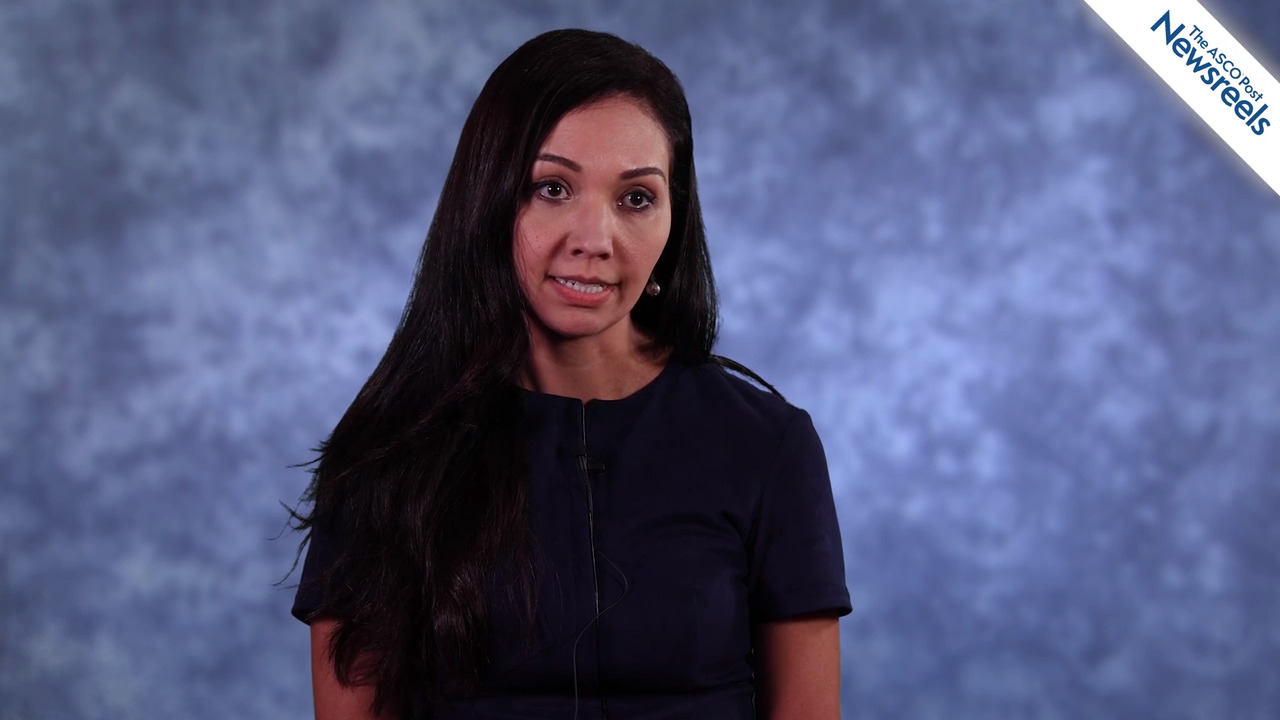Study Shows Increased Prescribing After Accelerated vs Regular Approval of Cancer Drugs
A cross-sectional study of cancer drug indications granted accelerated approval, which was published in JAMA Network Open, found that prescribing increased more after accelerated approval than after conversion to regular approval. Parikh et al also noted that off-label prescribing after accelerated ...
The Inflation Reduction Act and Ibrutinib
In August 2024, the Centers for Medicare & Medicaid Services (CMS) announced a negotiated price for the Bruton’s tyrosine kinase inhibitor ibrutinib that is 38% lower than the manufacturer’s list price. This new price will go into effect in January 2026. Negotiations began following passage...
CBO Report Finds Federal Cuts to NIH Would Threaten New Drug Development and Innovation
A new report from the nonpartisan Congressional Budget Office (CBO) has found that proposed cuts at the National Institutes of Health (NIH) could lower the number of new drugs that come to market in the next 3 decades. The report comes as Congress considers President Trump’s proposed budget for...
The Legal Impacts on Oncology Care of Prohibiting Diversity, Equity, and Inclusion Efforts
In January 2025, the Trump Administration issued executive orders asserting opposition to diversity, equity, and inclusion (DEI) programs on the federal level1,2 and rescinding Biden Administration orders that emphasized the importance of these efforts to promote equal opportunity across government ...
Patient Advocacy Groups: Health-Care Programs Are Lifelines—Not Line Items
Forty nonprofit, nonpartisan organizations issued a statement this week to the House Energy & Commerce and Ways & Means Committees in regard to budget cuts and policy changes affecting Medicaid and health-care marketplaces. “As organizations representing millions of patients with serious...
Association for Clinical Oncology: Proposed Changes to Federal Health Agencies Threaten Future Cancer Research Advancements
The Association for Clinical Oncology is carefully reviewing the Administration’s Fiscal Year 2026 (FY 2026) budget proposal, which was released on May 2 and contains significant cuts to federal health agencies under the Department of Health and Human Services (HHS), notably a 40% cut to the...
How Does Medicaid Expansion Affect Access to Care in Patients With NSCLC?
A recent study published by Hooda et al in The Annals of Thoracic Surgery suggests that Medicaid expansion under the Affordable Care Act has significantly improved access to timely treatment and high-volume hospitals for patients with early-stage non–small cell lung cancer (NSCLC). These findings...
Crossing State Borders: Addressing Residential Barriers to Cancer Care
A high proportion of Medicare beneficiaries cross state borders to access cancer care, particularly patients residing in rural areas, according to a recent study published by Moen et al in JAMA Network Open. The findings have significant implications for telehealth policies and physician licensure, ...
How the Cancer Moonshot Is Making a Difference for Patients Here and Across the World
Catharine Young, PhD, has spent the past decade of her career focused on cancer policy and advocacy. A native of Johannesburg, South Africa, Dr. Young served as Senior Director of Science Policy at the Biden Cancer Initiative, which began in 2017 by then former Vice President Joe Biden. There she...
FDA Proposes Significant Step to Reduce Nicotine Levels in Cigarettes, Tobacco Products
The U.S. Food and Drug Administration (FDA) issued a proposed rule that, if finalized, would make cigarettes and certain other combusted tobacco products minimally or nonaddictive by limiting the level of nicotine in those products. If the rule is finalized, the United States would be the first...
Deciphering the Impact of the 2024 Election on Cancer Care
Two weeks after the 2024 election, the Presidency and 119th Congress are coming into focus, with nearly all races called. Republican Donald Trump was elected President, and Republicans regained control of the U.S. Senate (53–47) and maintained control in the House of Representatives (218–212 at...
Prior Authorization Delays May Lead to Severe Consequences for Patients With Cancer
A recent nationwide survey has confirmed that prior authorization may cause treatment delays, abandoned treatments, hospitalizations, and deaths among patients with cancer, according to an executive summary published by the American Society for Radiation Oncology (ASTRO). The findings may reinforce ...
Impact of Food Insecurity on the Incidence of Hepatocellular Carcinoma
At the 2024 American Association for Cancer Research (AACR) Conference on the Science of Cancer Health Disparities in Racial/Ethnic Minorities and the Medically Underserved, Rebecca D. Kehm, PhD, of Columbia University Mailman School of Public Health, New York, and colleagues presented some of the ...
Medicaid Expansion May Improve Cancer Care, Survival Among Patients With Hormone Receptor–Negative, HER2-Positive Breast Cancer
Patients with newly diagnosed hormone receptor–negative, HER2-positive breast cancer were more likely to receive timely, guideline-concordant treatment and experience longer survival in states participating in Medicaid expansion under the Affordable Care Act, according to a recent study published...
ACA’s Dependent Coverage Expansion May Have Benefited Young Adult Patients Diagnosed With Cancer
Investigators have uncovered that during the Patient Protection and Affordable Care Act’s (ACA) first decade, the survival rates of Dependent Coverage Expansion–eligible young adult patients with cancer may have improved, according to a recent study published by Roth et al in Cancer. The federal...
Creating a Culture of Diversity, Equity, and Inclusion: Why It Matters Clinically and Ethically
The National Comprehensive Cancer Network (NCCN) has always prided itself on its commitment to evidence-based, expert consensus–driven recommendations for cancer care, with a special focus on breaking down the barriers that contribute to disparities in outcomes across all patients with cancer. With ...
ACA May Increase Access to Colorectal Cancer Care Among Underserved Groups
The Affordable Care Act (ACA) has increased guideline-concordant care for colorectal cancer among non-White patients, those from rural areas, and those from the most deprived neighborhoods in Pennsylvania, according to new findings presented by Kudaravalli et al at the 2024 American Association for ...
ASCO: SCOTUS Ruling Upends Country’s Regulatory Framework, Threatens to Complicate and Delay Health-Care Delivery
The Association for Clinical Oncology (ASCO) has serious concerns about the impact of the Supreme Court’s rulings in Loper Bright Enterprises v Raimondo and Relentless, Inc. v Department of Commerce on cancer care. These decisions overturned the “Chevron deference” or “Chevron doctrine,” a legal...
AACR Issues Annual Cancer Progress Report
The remarkable progress in medical research—primarily supported by federal investments in the National Institutes of Health (NIH) and the National Cancer Institute (NCI)—over the past 3 decades, coupled with advances in cancer prevention and early detection, has led to a 33% reduction in cancer...
Medicaid Expansion and Participation in Cancer Clinical Trials Among Patients Insured by Medicaid
Investigators may have uncovered the impact of the 2014 and 2015 Medicaid expansion on cancer clinical trial participation, according to a recent study published by Unger et al in JAMA Oncology. The new findings suggested that Medicaid expansion under the Patient Protection and Affordable Care Act...
Medicaid Expansion Associated With a Reduction in Mortality for Black Patients With Gastrointestinal Cancers
Studies showed that racial minorities experience disparities in access to cancer treatment and survival. In an effort to improve access to care for disadvantaged populations, the Affordable Care Act provided funding to states to expand Medicaid eligibility criteria and provide coverage to...
Effect of Medicaid Expansion on Survival for Young Adults With Cancer
In a study reported in the Journal of Clinical Oncology, Ji et al found that Medicaid expansion through the Affordable Care Act (ACA) has been associated with improved 2-year survival among young adults with cancer, with greater benefits observed in patients with breast cancer, those with stage IV...
Oncologist Participation in Medicare OCM and Patient Receipt of Novel Therapies
In a study reported in JAMA Network Open, Christopher R. Manz, MD, MSHP, and colleagues found that oncologist participation in the Medicare Oncology Care Model (OCM) was not associated with a reduced likelihood of prescribing novel cancer therapies to their patients. As stated by the investigators, ...
Medicaid Expansion and Palliative Care Use Among Patients Newly Diagnosed With Advanced Cancer
Recent data showed that Medicaid expansion may be associated with increased use of palliative care among newly diagnosed individuals with stage IV cancer, although overall usage of palliative care was low. In addition, the increase after Medicaid expansion varied by cancer type, according to a...
Justin M. Barnes, MD, on Medicaid Expansion and Changes in Cancer Mortality Rates
Justin M. Barnes, MD, of the Washington University School of Medicine, discusses the ways in which Medicaid expansion under the Affordable Care Act seems to affect distant diagnoses and cancer deaths per year, the differences in the impact of expansion between Black and White patients in the United States, and why insurance alone appears to be insufficient to overcome structural barriers to care for some populations.
Compliance of NCI-Designated Cancer Centers With January 2021 CMS Price Transparency Requirements
In a study reported in JAMA Surgery, Childers et al found that only one-third of hospitals with National Cancer Institute (NCI)-designated cancer center status were fully compliant with Centers for Medicare & Medicaid Services (CMS) price transparency requirements instituted in January 2021....
Reconciliation Bill Focuses on Health-Care Provisions
Update: On August 7, 2022, the Senate passed the Inflation Reduction Act (IRA), a broad climate, tax, and health-care reconciliation bill, with a vote of 51 to 50. During a review of the IRA, the Senate parliamentarian removed provisions from the bill that would have required drug companies to pay...
U.S. Cancer Care Facility Acceptance of Medicaid for Simulated Patients With Newly Diagnosed Common Cancers
In a study reported in JAMA Network Open, Marks et al found that only two-thirds of a sample of U.S. Commission on Cancer–accredited cancer care facilities accepted Medicaid insurance for the treatment of four common cancers in a simulated cohort of adult patients with newly diagnosed disease....
Biden Administration Announces New Model to Improve Cancer Care for Medicare Patients
On June 27, the Biden Administration, through the U.S. Department of Health and Human Services (HHS) and the Centers for Medicare & Medicaid Services (CMS), announced a new model aimed at improving cancer care for Medicare patients and lowering health-care costs. CMS’ Center for Medicare and...
Did the ACA’S Medicaid Expansion Affect Cancer Clinical Trial Enrollment?
Researchers from the SWOG Cancer Research Network, a clinical trials group funded by the National Cancer Institute (NCI), found that the Affordable Care Act’s (ACA) expansion of Medicaid insurance in 2014 was followed by a significant increase in the proportion of patients enrolling in SWOG trials...
Study Finds State Public Welfare Spending Was Associated With Improved 5-Year Overall Survival in Black Patients With Cancer
According to a recent report by The Commmonwealth Fund, “large racial and ethnic health inequities, driven by factors both inside and outside the health-care delivery system [in the United States], are common.” The result, according to the report, is that actions that could mitigate health...
Study Shows Medical Financial Hardship Increases Mortality Risk for Cancer Survivors
New findings from a large national study led by researchers at the American Cancer Society (ACS) show cancer survivors in the United States who reported medical financial hardship had a higher mortality risk than cancer survivors without financial hardship. Medical financial hardship was measured...
Race/Ethnicity Mortality Disparity in Patients With De Novo Stage IV Breast Cancer: Effect of Medicaid Expansion
In a study reported in JAMA Oncology, Malinowski et al found that Medicaid expansion resulted in a reduction in the racial and ethnic disparities in mortality among patients with de novo stage IV breast cancer. As stated by the investigators, “Patients who are uninsured and belong to racial and...
Effect of Changes to California Medicaid Dental Benefits on Earlier Diagnosis of Oral Cavity Cancer
In a study reported in a research letter in JAMA Oncology, Kana et al found that changes to Medicaid dental benefits in California from comprehensive to emergency services—and then back to comprehensive—were associated with reduced, then increased, percentages of cases of oral cavity cancer...
2023 ACA Proposal Aims to Advance Health Equity and Improve Access to Health-Care Coverage
ASCO submitted comments in response to the Centers for Medicare & Medicaid Services’ (CMS) Patient Protection and Affordable Care Act 2023 Notice of Benefit and Payment Parameters proposed rule. The rule includes proposed changes to standards for issuers and marketplaces and reinstates many...
President’s Cancer Panel Report: Closing Gaps in Cancer Screening for All Americans
Much progress has been made in the past 50 years since the signing of the National Cancer Act of 1971, which included the establishment of the President’s Cancer Panel. Nevertheless, there remain significant opportunities to make improvements across the cancer spectrum, perhaps none more pressing...
CMS Expands Coverage of Lung Cancer Screening With Low-Dose CT
On February 10, the Centers for Medicare & Medicaid Services (CMS) announced a national coverage determination that expands coverage for lung cancer screening with low-dose computed tomography (CT) to improve health outcomes for people with lung cancer. This type of screening is aimed at early...
Leticia Nogueira, PhD, MPH, on the Association of Medicaid Expansion and Early Mortality Following Lung Cancer Surgery
Leticia Nogueira, PhD, MPH, of the American Cancer Society, discusses results from a study designed to evaluate the impact of Medicaid expansion under the Affordable Care Act (ACA). In Medicaid-expansion states, mortality among patients after lung cancer surgery decreased from 2.4% before the ACA to 0.8% after the ACA, with no significant change in non–Medicaid-expansion states.
Study Finds Lower Income Eligibility Limits for Medicaid Associated With Worse Long-Term Survival for Newly Diagnosed Patients With Cancer
A study investigating the association between state Medicaid income eligibility limits and long-term survival among newly diagnosed patients with cancer has found that patients living in states with lower Medicaid income eligibility limits had worse long-term survival compared with patients living ...
Evaluation of Baseline Cancer Mortality Risk in Medicaid Expansion and Nonexpansion States
In a study of National Cancer Database data reported in a research letter in JAMA Oncology, Salazar et al found little difference in baseline cancer mortality rates between U.S. states that expanded Medicaid enrollment and nonexpansion states prior to expansion in 2009 and immediately following...
Canadian Oncologists Report Costly Delays in Their Drug Regulatory Process
Canada’s publicly funded health-care system has a complex drug approval and funding process. Due to multiple assessment steps and bureaucratic processes, newly developed cancer drugs can often experience long delays before oncologists may use them to treat their patients with cancer. Several...
How the Biden Administration Is Changing Oncology Care
A change in presidential administrations has implications across the health sector, including for oncology. In this column, we review some recent actions by Congress and the Biden administration and their implications for the oncology community. We focus on three areas: funding for patients and...
Jingxuan Zhao, MPH, on How Medicaid Expansion Affects Long-Term Cancer Survival
Jingxuan Zhao, MPH, of the American Cancer Society, discusses study findings that showed worse long-term survival among low-income patients with cancer who live in states that have not expanded Medicaid eligibility (Abstract 6512).
Study Finds Income Eligibility Limits for Medicaid May Be Associated With Worse Long-Term Survival Among Newly Diagnosed Patients With Cancer
A study investigating the association between state Medicaid income eligibility limits and long-term survival among newly diagnosed patients with cancer has found that patients living in states with lower Medicaid income eligibility limits had worse long-term survival compared with patients living...
Report Shows Medicaid Expansion Alone Does Not Resolve Disparities in Cancer Care
In the United States, Black and Latinx individuals have higher cancer mortality rates than patients of other races. Under the Patient Protection and Affordable Care Act (ACA) in 2014, many states expanded Medicaid eligibility, promising significant gains in coverage for racial minorities. But it...
Breast Reconstruction Disparities Improved With Medicaid Expansion
Medicaid expansion under the Affordable Care Act was associated with significant increases in breast reconstruction among non-Hispanic Black women, achieving parity at times with non-Hispanic White women, according to a new study presented by Sharon Lum, MD, and colleagues at the American Society...
NCCN 2021 Virtual Annual Conference
New recommendations to advance racial equity, ways to mitigate the impacts of the COVID-19 pandemic on cancer care, and ongoing strategies for preventing and controlling human papillomavirus (HPV)-associated cancers led the conversation at the National Comprehensive Cancer Network® (NCCN®) 2021...
Medicaid Expansion Is Associated With Earlier Diagnosis of Gastric Cancer, Improved Survival
Medicaid expansion caused a decrease in uninsured patients and led to an earlier diagnosis of gastric cancer with an associated increase in 1-year survival, according to research presented by Zhu et al at the Society of Surgical Oncology 2021 International Conference on Surgical Cancer Care...
Cancer Control in Egypt: Investing in Health
Egypt is a country of 1,010,408 km2 located on the northeast corner of Africa with a population exceeding 100 million. In 2018, there were about 134,632 new cancer cases and 89,042 cancer-related deaths in Egypt. Liver and breast cancers are the most common tumors in terms of incidence and...



